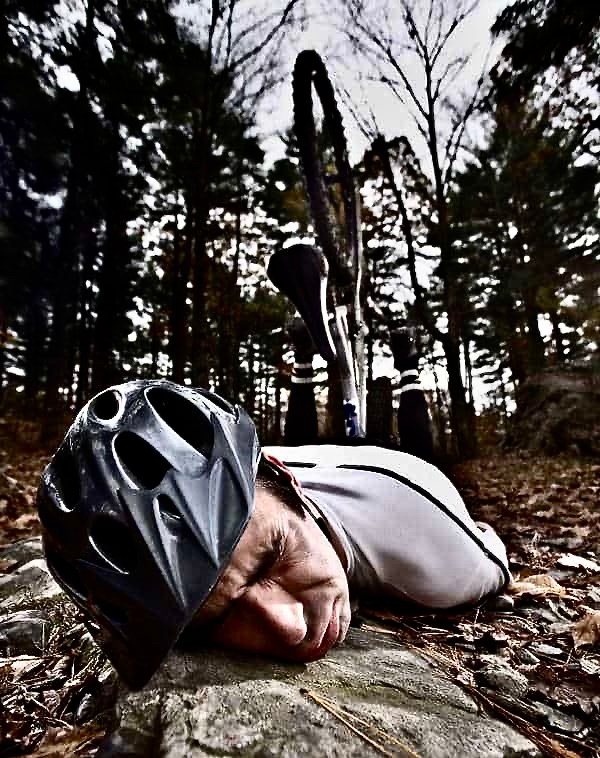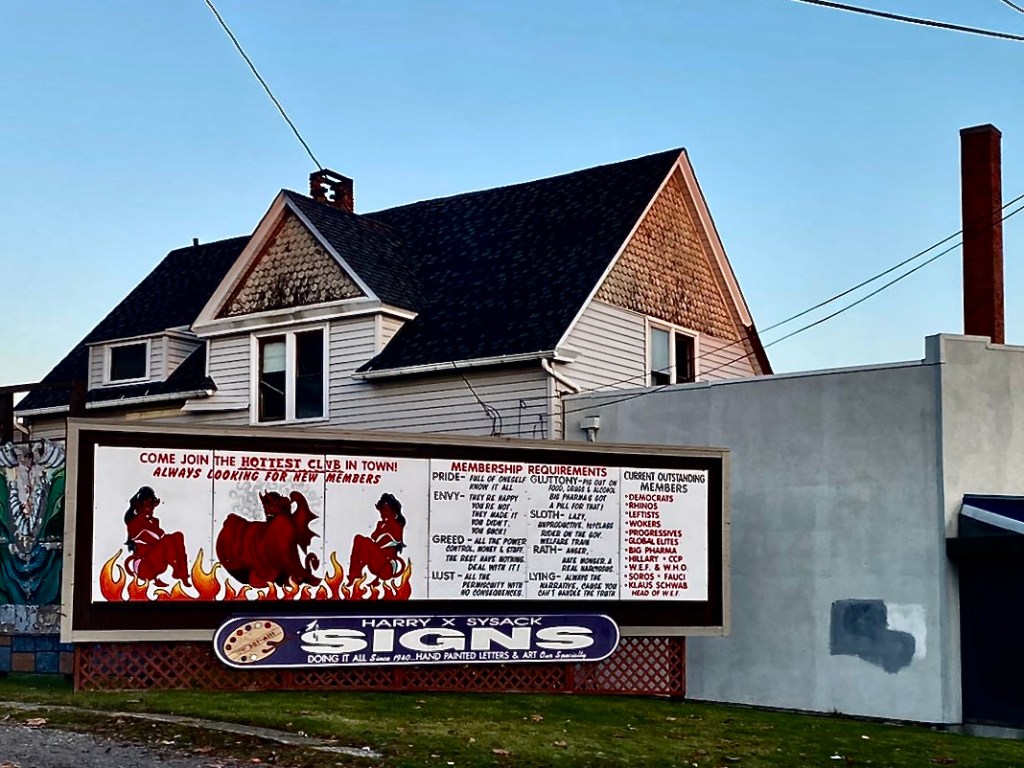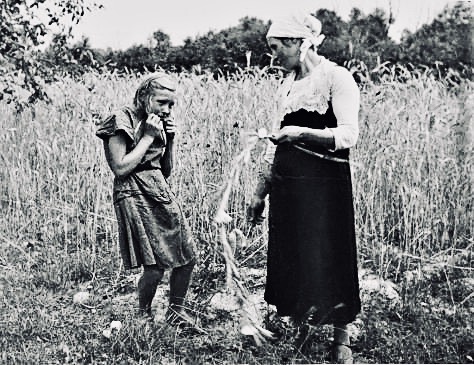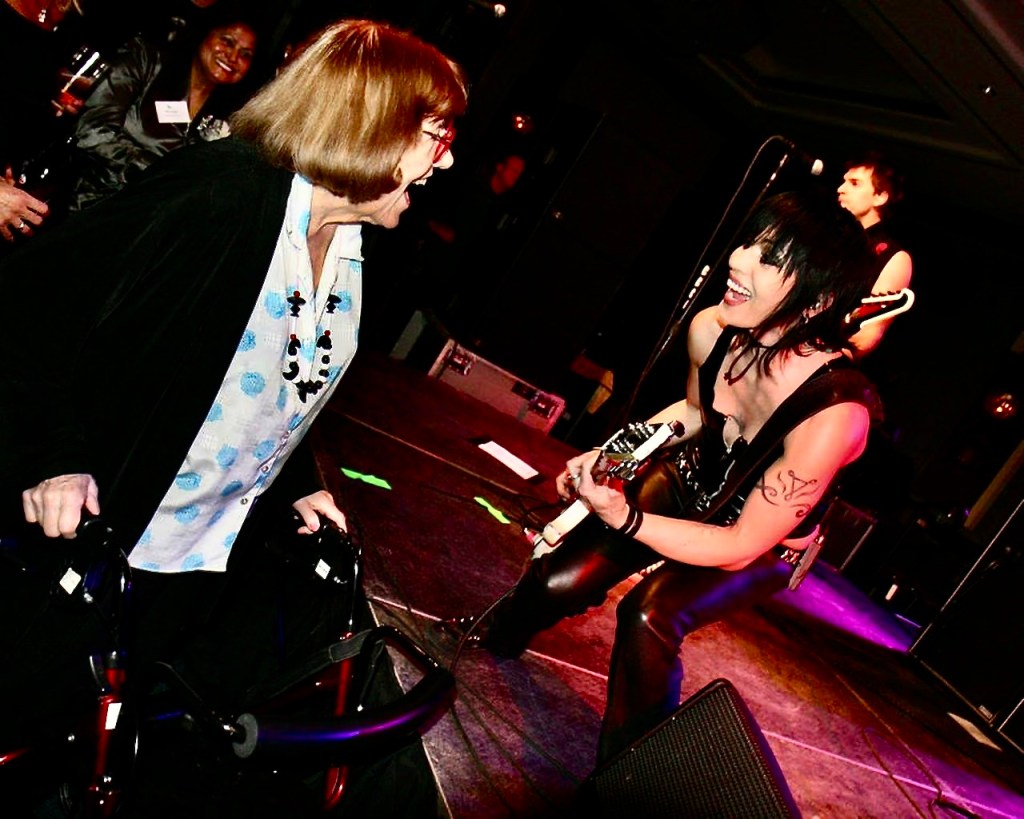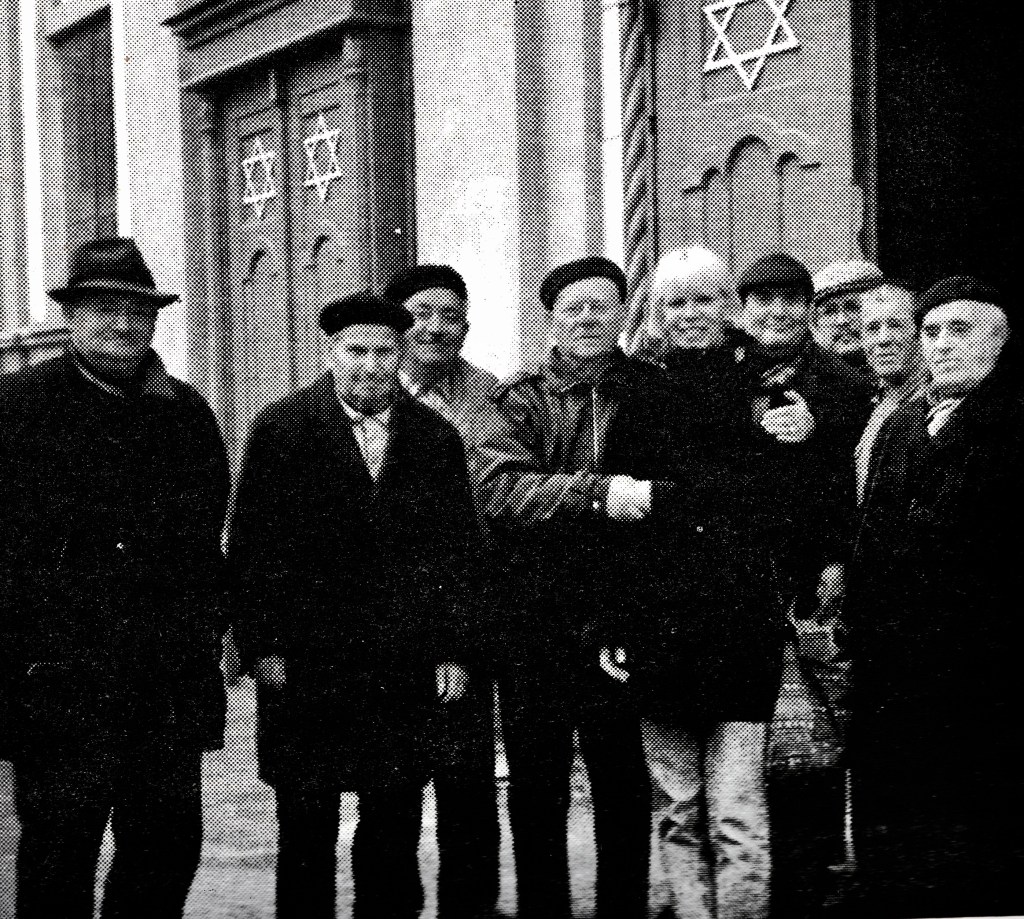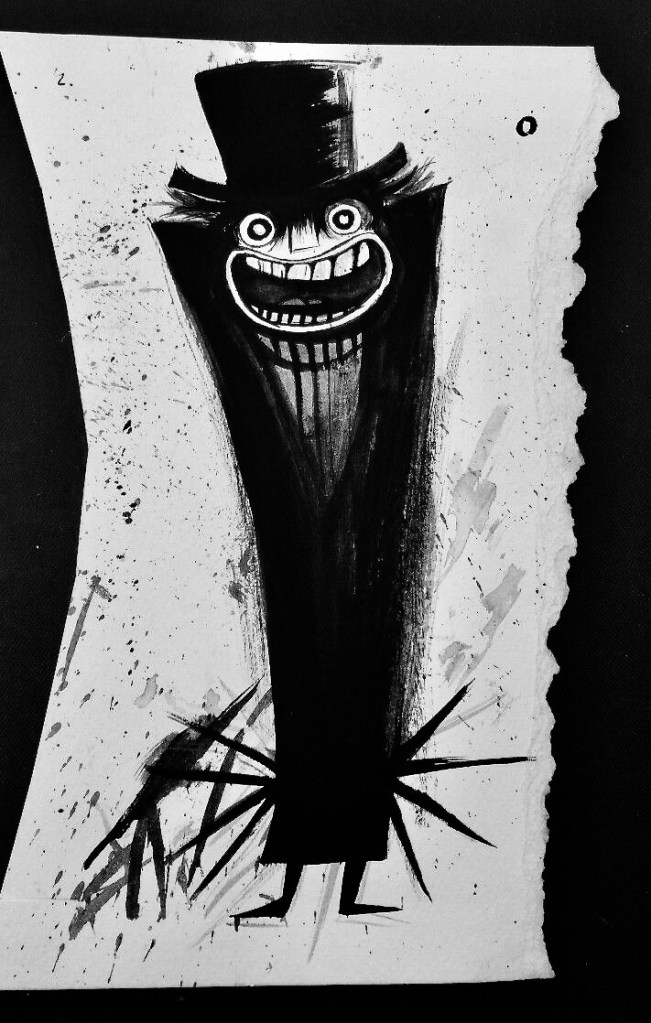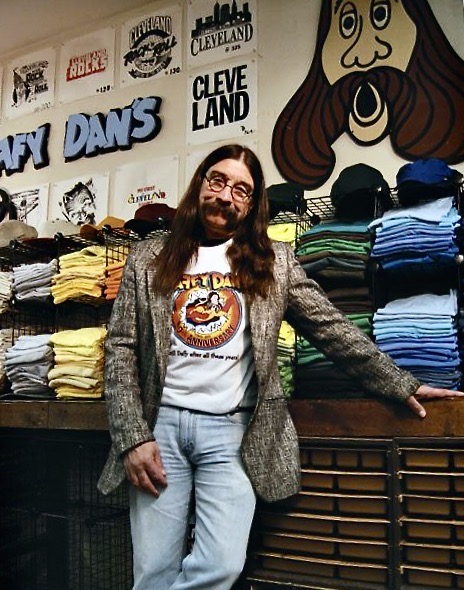
By Ed Staskus
“I see you’ve made it back,” Michelle said. She was sporting retro eyeglasses and handcrafted rings on nearly every finger of every hand. Waiting tables, delivering three, four, and five plates at a time, is all hands on deck kind of work.
“I want to try the pad Thai this time, after seeing the folks next to us digging into it the last time we were here,” Vera said.
“That’s one of Emily’s best, definitely,” Michelle said. “Would you like to start with a drink?” She was one of three servers on the floor the mid-September evening Frank and Vera Glass were there for dinner. It was busy but nobody had to wait long for liquids and solids. The place was The Mill in New Glasgow on Prince Edward Island.
“What is a good mixed drink?” Vera asked, running her eyes up and down the menu.
“Everything is good, but Kim can mix up anything if we don’t have it on the list.”
“What is Straight Shine?”
“Shine.”
“Like moonshine?”
“Just like that. It’s our island-made moonshine.”
“Like Ole Smoky in a mason jar?” Frank asked.
“Not the same, it’s more like a margarita,” Michelle said.
“That’s a step in the right direction.”
“My God, I should moonshine,” Vera said. “My grandfather used to make his own vodka at home. All his friends from Lithuania, who escaped during the war, would come over on Sunday afternoons after church, drinking the rest of the day, yakking it up and singing their old country songs all night. I’ll try it, for sure”
“Not for me,” Frank said, “I’ll have a pint, something IPA.”
The Mill is in a two-story Dutch Colonial-like blue building built in 1896. It served as a community center and later as a courthouse, among its many incarnations. It was converted to a restaurant in the 1990s by the Larkin’s, nearby poultry farmers who are the largest turkey growers in the province.
“We used to have a guy in shipping where I worked, in the warehouse, from West Virginia, who brought back moonshine every time he went home for a visit,” Frank said. Vera sipped her Straight Shine. “He always said you could tell it was good if you put a match to it and the flame burned blue. That meant it was good to go and wouldn’t make you go blind.”
Michelle walked up and lit the tea candle on their table.
“How is it?”
“It looks good to me,” Vera said. “What I mean is, it tastes good.”
When the Larkin’s transitioned out of the dining room business, The Mill stayed where it was when chef Emily Wells took over, putting her fusion-style stamp on the dining room. Diners soon put their stamp of approval on the fare.
Vera ordered the stir-fried garlic ginger cilantro rice noodle fettucine pad Thai with lobster and Frank ordered the special, which was curry sweet potato soup, baby back ribs with mac and cheese, and dessert. It was East meets West meets Italy. Fusion cooking is the art of mixing ingredients and preparation styles from different cultures into a distinctive plate of tastiness.
The window Frank and Vera were sitting at had gone dark by the time they finished their dinners, although Vera was still coming around the bend. She was a slow eater and her plate had been stacked. A quarter-moon in a cloudless sky reflected a milky light on the Clyde River below them in the hollow. Frank leaned back in his chair as Vera lifted a final forkful to her mouth.
“Since we both ordered something new to us, why don’t we try something new for dessert, too?” Frank said.
They had eaten at The Mill several times and usually ordered coffee and carrot cake after dinner, since the carrot cake was just about the best they had eaten anywhere.
“It’s better than my mom’s, and she’s a pro,” Vera said.
Vera’s mother was a freelance pastry chef in Cleveland, Ohio, providing sundry restaurants with sweet treats. During the holidays she made website-ordered Russian Napoleon cakes, shipping them frozen solid all around the country by Fed-Ex next-day air.
“How about the chocolate cake that couple from Boston told us about?” Vera asked.
“When we’re here we drive around the island,” the husband from Boston said. “We’ve eaten at a lot of restaurants but overall this is our absolute favorite. What’s so great about it? The unique combination of flavors and menu options, for one, and there’s not a deep fryer in the kitchen, for another thing. They’re dedicated to local sourcing, which means super fresh food and vegetables. Make sure to try the chocolate cake even if you’re full. It melts in your mouth.”
He added that the portion was large, too, enough to share. Unlike some restaurants with a glowing reputation on Prince Edward Island, in the meantime serving prison camp portions at penthouse prices, The Mill gets it done with a square deal, even though it has as much, if not more, in the culinary arts to crow about.
“Do you bake the chocolate cake here?” Vera asked.
“Our baker does,” Michelle said.
They ordered a slice of the chocolate cake and two coffees. Michelle stopped at their table. She asked them how they liked the cake.
“It’s totally delicious, the dark chocolate, if you want to let the baker know,” Frank said. A few minutes later a strapping youngster with disheveled hair walked up to their table. She said she was the baker and her name was Anna. She looked like she was maybe a sweet sixteen teenager.
“You made this?” Frank asked, pointing to the half-eaten slice of cake he was sharing with his wife.
“Yeah,” Anna said, wiping her hands on her apron.
“Do you make the carrot cake, too?”
“Yeah.”
“This cake is what chocolate cake should taste like, up-to-the-minute,” “era said. “They can be boring, the same thing over and over again. This is definitely a bomb cake, in more ways than one.”
“You seem awfully young to be making something this good,” Frank said.
“Yeah,” Anna said, shrugging and smiling.
“How old are you?”
““I was 15 years old when I first started cooking here two years ago.. I came in to work one day, I was bussing tables, and my boss said, you’re scaring everybody out there. You have to go into the kitchen. From that point on I’ve worked in the kitchen.”
“Scaring everybody?”
“Yeah, they said my personality was too big.”
“Too big?”
“I was just barely fifteen. How scary could I be? I guess I can be scary sometimes. Nothing’s really changed.”
“I told her when she worked out front that she was scaring the customers with her huge personality,” Kim, the mixologist, said “Now that she’s in the kitchen she can still be scary, I’ll teel you. She’s come up with nicknames for all of us. We won’t talk about that, though. It can get gross.”
“What did you guys eat?” Anna asked..
“She had the Thai and I had the special,” Frank said. “We often have the big seafood chowder bowl, the unofficial one.”
“Ahhh,” Anna said.
“I’ve heard you have a name for it in the kitchen.”
“We have a nickname for it.”
“That would be Big Ass Bowl?”
“Yeah.”
“I always taste orange in the soup,” Vera said.
“Yeah, there are orange peels, marinated, and bay leaves, that we take out right before service. We make our own fish broth.”
The restaurant, brainchild of Emily Wells, who was named one of Canada’s top chefs by the Matador Network in 2016, serves local food made with global flair. She works in an adaptive vein, adapting her recipes to what’s in place and on time. “We’re buying local lettuce, local tomatoes,” Emily said. “A huge chunk of it is seafood since it’s seafood season.” A graduate of the first class at the Culinary Institute of Canada, she cut her teeth in kitchens in Ontario and later made a name for herself at The Dunes in Brackley Beach.
“I’ve been at it for thirty-five years,” she said.
“Oh, I’ve got mussels on the stove, back in a minute,” Anna said, striding out of the dining room.
“I thought Emily was making the desserts, or they were buying them from some high-end bakery,” Vera said.
“If that teenager is the pastry chef, all I can say is, she’s totally up to speed,” Frank said.
“Do you make all the desserts?” Vera asked when Anna came back to their table.
“Yeah, I’m a line cook and the baker.”
“My mother is a pastry chef. You’re darned good.”
“How did you learn to bake so well?” Frank asked.
“Emily taught me. I‘m a quick study. I learned a lot from my grandmother, too I used to spend all my time with her when I was a kid. She taught me how to pickle and bake.”
Not everybody is good with pastry, not by any means. Not even celebrity chefs. “I make no bones about it,” says Michael Symon, chef, author, and restaurateur. “I have no understanding of pastry whatsoever.”
“Honestly, I hate to say this,” Anna said, “but my aunt makes an even better carrot cake than I do.”
“You’re early on to be nearly as good as your aunt,” Frank said.
“Most of our staff is young,” Anna said. “Everybody in the kitchen is under 20, except Andrea and Emily. We have a 19-year-old, another 17-year-old, and a 13-year-old, who I is my sister. Luke, our other prep, has three younger brothers who work here.”
“It’s like the family line on the line,” Frank said..
If you are under sixteen in the province of Prince Edward Island and want to work, you must have permission from your parents, must work only between 7 AM and 11 PM, and not work in an environment that is harmful to your health, safety, or moral development, among other things. If you are over sixteen, those limits don’t apply.
Sometimes known as the Million-Acre Farm, farming is king on the island. Farming for a living is hard work. You probably don’t need a gym membership. There are some advantages. You are your own boss, you can go to work in boots and a t-shirt, and you eat like a king.
“I started as a dishwasher,” Anna said.
Working the dish pit means long hours on your feet, getting wet a lot, and ending the day smelling like food and soap. It’s not markedly different than farming, except farming is at the head of the line and washing dishes is at the end of the line.
“The kids are great,” Kim said. “Ours is a teaching kitchen, so they get an education, and get paid. They all have a great work ethic. The little hostess, she’s fifteen, a crackerjack like Anna. It’s good to see that they want to work. I’ve worked in other places, and it’s like pulling teeth, all standing around. Here, they’re eager to learn and do.”
“A lot of people, their idea of baking is buying a ready-made mix and throwing in an egg,” Vera said. “I make carrot cake at home, but it’s just carrots and stuff. One of our cats likes a piece now and then. Yours is both simple and complex. It’s subtle, really fine,”
“The main spices we use are ginger, cloves, and cinnamon, and a bit of all-spice, and that’s about it.”
“The cake isn’t heavy, which is what I like.”
“There’s pineapple in it, too.”
“The frosting is terrific.”
“I was supposed to whip up more frosting yesterday, but I couldn’t come to work,” Anna said. “I decided my cat must have died.”
“Oh, my gosh, that’s too bad!” Vera said. “What happened to make you decide that?”
“She was an outdoor cat. I had her since I was six, I came home one day and asked, where’s my cat, but nobody had seen her for days. It’s been a month now. I sat outside yesterday in my lawn chair until it got dark, hoping she would come back but she never did. I’m pretty sure she got eaten by a coyote.”
After paying the bill, Frank and Vera lingered outside at the rail on the front deck. The band that had been playing in the upstairs loft was in the parking lot, still hooting it up. The night air was damp but brisk. The moon hovered in the inky sky. Across the street lights glowed over the bay doors of the New Glasgow Volunteer Fire Department.
“That girl might be one of the best 17-year-old pastry chefs no one has ever heard of,” ” Frank said.
“Between the known and the unknown, what else is there?” Vera said.
“That moonshine seems to have gone to your head,” Frank said.
“Ha, ha, ha. Anyway, she’s got a big smile, big energy, and some big cake talent. Somebody will hear about her, sooner or later.”
There’s always a ‘Surprise Inside’ every box of Cracker Jack, Frank thought.
They walked to the end of the deck leading to the side lot. Fluorescent lights blazed in the windows of the kitchen. Dishes clattered in sinks, the kitchen staff having a gab fest as they cleaned up. They heard high-spirited laughter, which followed them down the steps and a stretch of parking lot gravel to their car. A red fox chasing a brown rabbit ran past them into the bushes.
“You know how they say you are what you eat,” Frank said.
“Of course.”
“This is as good a place to be what you eat as any.”
Ed Staskus posts monthly on 147 Stanley Street http://www.147stanleystreet.com, Made in Cleveland http://www.clevelandohiodaybook.com, Down East http://www.redroadpei.com, and Lithuanian Journal http://www.lithuanianjournal.com. To get the site’s monthly feature in your in-box click on “Follow.”
“Cross Walk” by Ed Staskus
“A Cold War thriller that captures the vibe of mid-century NYC.” Sam Winchell, Beyond Books
Late summer, New York City, 1956. The Mob on the make. The streets full of menace. President Eisenhower on his way to Brooklyn for the opening game of the World Series. A killer waits in the wings. A private eye working out of Hell’s Kitchen scares up the shadows.
Available on Amazon: https://www.amazon.com/dp/B0CRPSFPKP
A Crying of Lot 49 Publication

